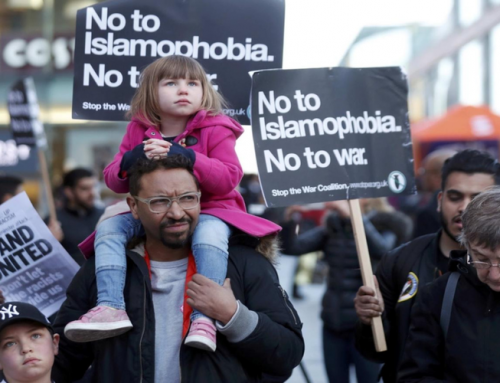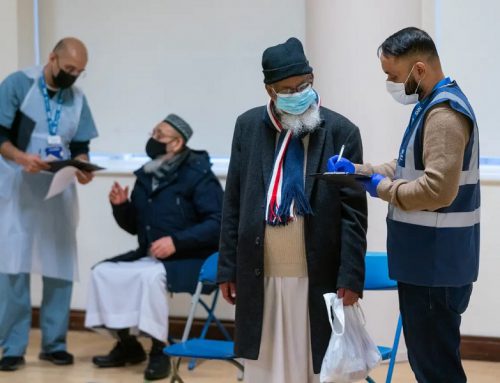What Is Terrorism?
We should start our discussion by understanding the definition of “Terrorism”. The dictionary-definitions of terrorism are usually simple and clear, though. They often go something like this: “The use of violence, or the threat of violence, to frighten people in order to achieve a political, social, or religious goal.” As of this posting, the Oxford Dictionary (US English) defines terrorism as “the use of violence and intimidation in the pursuit of political aims,” yet The Oxford Dictionary (British & World English) further elucidates terrorism as “the unofficial or unauthorized use of violence and intimidation in the pursuit of political aims.” It would seem that there’s no universal consensus about what constitutes terrorism. The League of Nations first proposed a legal definition of the word as far back as 1937, and a UN committee has been trying to define the term for over 40 years.[1]
The Revised Academic Consensus on the Definition of Terrorism
Terrorism is a contested concept. While there are many national and regional definitions, there is no universal legal definition approved by the General Assembly of the United Nations (the one proposed by the Security Council in Res. 1566 (2004) is non-binding, lacking legal authority in international law). The Ad Hoc Committee on Terrorism of the 6th (legal) Committee of the General Assembly has, with some interruptions, been trying to reach a legal definition since 1972- but in vain. In the absence of a legal definition, attempts have been made since the 1980s to reach agreement on an academic consensus definition. The latest outcome is the revised definition reprinted below. It is the result of 3 rounds of consultations among academics and other professionals. A description how it was arrived at can be found on pp. 39-98 of Alex P. Schmid (Ed.). The Routledge Handbook of Terrorism Research. London and New York: Routledge, 2011. The same volume also contains 260 other definitions compiled by Joseph J. Easson and Alex P. Schmid on pp. 99 -200.[2]
What Is Counter-Terrorism?
After understanding the term “Terrorism”, we should now be familiar with the term “Counterterrorism”. It means (Government, Politics & Diplomacy) activities that are intended to prevent terrorist acts or to eradicate terrorist groups.[3]
The most common definition of counterterrorism (also spelled counter-terrorism) on the Internet is the practices, tactics, techniques, and strategies that governments, militaries, police departments and corporations adopt in response to terrorist threats and/or acts, both real and imputed.[4]
What Are the Objectives of Counter-Terrorism?
Every Government agency involved in counterterrorism has an objective in the war on terror. Their task is to neutralize terrorist cells and operatives in their country and to help dismantle terrorist networks worldwide. In doing this job, numerous agencies and departments of homeland security have authority to combat terrorism. The objective of national counterterrorism center is to integrate and orchestrate the dreadful capabilities of the Government dedicated to defeat international terrorism and reduce the threat of that country’s interests at home and abroad.[5]
How Does Counter-Terrorism Work?
There are two aspects of counter-terrorism. The first is to make citizens safer from terrorist threats through screening of airline passengers, placing video cameras and metal detectors in public places, random patrols of bomb-sniffing dogs, etc. The second is neutralization of terrorists through arrests, prosecutions, assassinations, raids on terrorist facilities, military action, etc. Full counter-terrorism encompasses threat reduction by making the country a “harder target” and actively “going after” terrorists. Effective counter-terrorism is a challenge because all the agencies of the government are involved.[6]
What Terrorists Really Want: Terrorist Motives and Counterterrorism Strategy
What do terrorists want? No question is more fundamental for devising an effective counterterrorism strategy. The international community cannot expect to make terrorism unprofitable and thus scarce without knowing the incentive structure of its practitioners. The strategic model—the dominant paradigm in terrorism studies—posits that terrorists are political utility maximizers. According to this view, individuals resort to terrorism when the expected political gains minus the expected costs outweigh the net expected benefits of alternative forms of protest. The strategic model has been widespread in the policy making community; extant counterterrorism strategies seek to defeat terrorism by reducing its political utility. The most common strategies are to fight terrorism by decreasing its political benefits via a strict no concessions policy; decreasing its prospective political benefits via appeasement; or decreasing its political benefits relative to nonviolence via democracy promotion. Despite its policy relevance, the strategic model has not been tested. The actual record of terrorist behavior does not conform to the strategic model’s premise that terrorists are rational actors primarily motivated to achieving political ends. The prevalence of empirical and theoretical evidence is that terrorists are rational people who use terrorism primarily to develop strong affective ties with fellow terrorists. Major revisions in both the dominant paradigm in terrorism studies and the policy community’s basic approach to fighting terrorism are consequently in order.[7]
Overall Effects of Counter-Terrorism Strategies
Many effects are close to, or cannot be statistically discerned from, a zero effect and therefore provide no statistical evidence that the counter-terrorism strategy was effective or harmful. Additionally, while there appears to be negative effects (which indicate a decline in terrorism events due to the intervention), there are also interventions that appear to have increased the likelihood of a terrorist event occurring (effects greater than zero). As warned earlier by many, summary statistics for all counter-terrorism programs examined can be misleading and difficult to interpret because the values represent effects from different types of interventions, constructs, and time periods.[8]
Effects of Specific Intervention Strategies
The findings in total represent a variety of strategies, outcomes measured and time periods examined. Thus, to distinguish the effectiveness of counter terrorism programs, we can identify six categories of interventions and their separate effects. For categories with enough meaningful findings, we can also calculate the weighted mean effect size and confidence intervals. These six categories are:
- Interventions which increased detection at airports, including installing metal detectors and increasing security screening more generally.
- Interventions which increased protection, including those which fortified embassies or protected diplomats.
- Interventions which increased the length and/or severity of punishment for those apprehended and convicted of terrorism.
- Interventions that represented United Nations Resolutions against terrorism.
- Military interventions and/or retaliations, specifically, the Israeli retaliation attacks on the PLO and Lebanon in the 1970s and 1980s and the United States attack on Libya in 1986.
- Changes in political governance, such as having certain political ideologies in power or the end of the cold war (and reduction in totalitarian states).[9]
Discussion
The combination of findings from the studies found to evaluate counter-terrorism measures using at least a moderately strong research design provides for a number of interesting discussion points across this literature. Most importantly, interventions commonly used, including military retaliation campaigns, the fortification of buildings, United Nations resolutions and other laws, as well as increasing the certainty and/or severity of punishment, may not be as promising as much of the non-evaluation terrorism literature often seems to suggest. In many cases, effects are not statistically visible from a worthless effect, or can be harmful and increase the likelihood of certain types of terrorism.[10]
Suggestions for Counter-Terrorism Agencies
- Counter-terrorism policy needs to be rational, effective, and cause as little harm as necessary. In order to determine the effectiveness of counter-terrorism strategies, we need to evaluate whether the intervention is connected to a measurable, desired outcome. Surveying individuals about whether they think a policy works, or subjectively determining what a successful strategy “looks like” is neither scientific nor will it generate the necessary data/information to allow for a determination to be made regarding the effectiveness of a particular strategy.
- Along the same lines, government agents need to pay attention to scientific research about counter-terrorism programs when deciding upon policy choices. Such attention can also serve as a reciprocal force to increase evaluation research by the academic community. It is an often-mistaken notion that research is far removed from practice; countless examples of the effective use of findings from evaluation in crime prevention have proven otherwise.
- This need for evaluation research requires that scientists are welcomed into the counter-terrorism enterprise. This includes fostering better collaborations between government agencies and researchers. Indeed, researchers understand that much information associated with terrorism requires security protections, and government agencies should consider extending clearances to evaluation researchers. However, some of this secrecy is unwarranted or at least can be better facilitated. Many decades ago, police agencies also mistakenly believed that crime data could not be given to scientists to study. Luckily, many police agencies have overcome these fears, which have led to major improvements in their effectiveness. The interaction between social scientists and government has led to many social advances, and the area of terrorism is no exception.
Suggestions for the Researchers Studying Terrorism
- Only a small fraction of terrorism research appears to be empirical in nature. We need more empirical research on terrorism, perhaps that goes beyond just examining numbers of events over time. More specifically, evaluations of interventions are necessary, such as those listed in the discussion of this review.
- Not only is more evaluation research needed, but researchers need to also explore ways in which terrorism strategies can be analyzed and different types of methodologies which may be useful.
- Evaluation research can serve as a moderating and rational effect on rash policy responses based on moral panic and fear. These types of policies often lead to other social negatives, including the violation of personal and human rights as well as further humiliation that can lead to more terrorism. Scientists can provide this moderating effect with more research that evaluates both the outcome effectiveness as well as the social, political, economic, or psychological effects of these interventions.
*Dr. Muhammad is Adjunct Professor, International Islamic University Islamabad, Pakistan.
[1] See more at: http://blog.oup.com/2015/11/meaning-of-terrorism/#sthash.ME7yO1iz.dpuf [5-9-2016]
[2] http://www.terrorismanalysts.com/pt/index.php/pot/article/view/schmid-terrorism-definition/html [5-9-2016]
[3] http://www.thefreedictionary.com/counterterrorism [5-9-2016]
[4] http://usforeignpolicy.about.com/od/defense/a/what-is-counterterrorism.htm [6-9-2016]
[5] http://usforeignpolicy.about.com/od/defense/a/what-is-counterterrorism.htm [6-9-2016]
[6] http://usforeignpolicy.about.com/od/defense/a/what-is-counterterrorism.htm [6-9-2016]
[7] http://www.mitpressjournals.org/doi/abs/10.1162/isec.2008.32.4.78#.V86s7vl94ol [ 6-9-2016]
[8] http://www.terrorismanalysts.com/pt/index.php/pot/article/view/122/html [ 6-9-2016]
[9] http://www.terrorismanalysts.com/pt/index.php/pot/article/view/122/html [ 6-9-2016]
[10] http://www.terrorismanalysts.com/pt/index.php/pot/article/view/122/html [ 6-9-2016]





